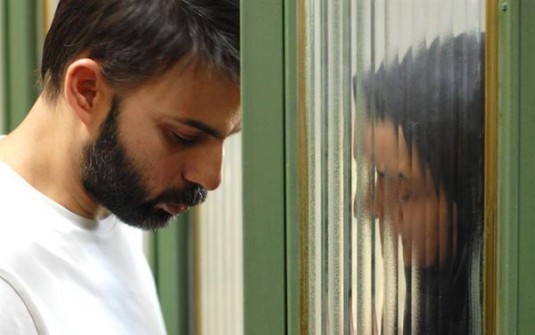The following is by a writer who wishes to remain anonymous.
Iran’s fraudulent 2009 elections were a critical moment in the country’s recent history, for it was then that Iranians realized how polarized their country had become. The hopelessness of Iranians is painful to describe, but it is palpably there—in the hardening of people and the decay of public manners, and in the cynicism of friends who used to be unfailingly optimistic. Young people with aspirations long to get out of a country where economic growth has stalled and a uniformed oligarchy flourishes in the sealed atmosphere created by sanctions.
The suppression of the Green Movement in 2009 and 2010 has damaged civil society. Some of the country’s brightest activists, journalists, and filmmakers have been silenced or gone into exile. Bloggers and pop musicians operate in a penumbra of semi-illegality. The state devotes much attention to jamming foreign TV channels and blocking Internet sites, while the “loyal” media are full of the uplifting pronouncements of the supreme leader, Ayatollah Khamenei. As the owner of a tea-shop remarked to me recently, holding up a once-respected Tehran newspaper, “I do the crossword and the rest I use to clean the windows.”
Asghar Farhadi’s film Nader and Simin: A Separation, is a fine account of Iran’s predicament; anyone interested in the mysteries of change and tradition—the difficulties faced by many people as they try and reconcile themselves to modern values and norms—will learn much from it. I saw it in Tehran this summer, and so movingly did it reflect what I was witnessing around me, I was surprised that the authorities had allowed it to be screened and its creator and leading actors to travel to Germany to be honored by the Berlin Film Festival. The film won the Golden Bear for best film, and its male and female casts were recognized collectively, too.
Nader and his wife Simin lead careful, middle-class lives. They live with Nader’s father, who has Alzheimer’s, in the latter’s apartment. They are reasonably well-off, but have restricted themselves to one child, a girl called Termeh, who is in the throes of puberty and exams.
The family is mildly patriotic—they listen to Persian classical music and Nader has a preference for Persian over Arabic loan words—but the West seems to offer more opportunities and freedom. Simin wants the family to emigrate so that Termeh can flourish; Nader refuses to abandon his father. The couple drift acrimoniously toward divorce, with Termeh as collateral damage. Thus, without mentioning politics, Asghar Farhadi makes his portrait of a Westernized Iranian family—exactly the sort of people who would support the Green Movement.
A scene from Asghar Farhadi’s Nader and Simin: A Separation
His depiction of poor, pious Tehran is equally convincing. Razieh, a poor woman who is guided by Islam and whom Nader has engaged to nurse his father, seems like a typical Ahmadinejad supporter but her family has also taken a battering. Razieh’s home is in a distant suburb, and she is pregnant, but she undertakes the arduous daily commute to Nader’s house because she and her unemployed husband, Hojjat, desperately need the money. Razieh is a chador-wearer (unlike Simin) and her reaction if she is confronted by a moral dilemma is to call a mullah for advice. This is what she does on her first day in her new job, for Nader’s father wets himself and she wants to know if it is permissible for her to wash him. (The answer is yes, if there is no male help available).
These two couples are good, conscientious people, undone by the complexity of their lives. Razieh briefly leaves Nader’s father alone in the apartment, with almost fatal consequences. Later we learn that she has lost her unborn baby to a violent blow. Was it landed by Nader, enraged by her failure to take proper care of his father? Accusation and counteraccusation are traded in the prosecutor’s office and here, in scenes of great power, Nader and Hojjat exhibit the mutual incomprehension that exists between two kinds of Iranian. To Hojjat, Nader is glib, impious, and oversexed. Nader is incensed by Hojjat’s self-righteousness. “Oh yes,” he says sarcastically, “and the Prophet belongs only to you?”
Farhadi’s earlier films have emphasized the importance of deceit in human relations; the characters in Nader and Simin are exemplary in this respect. Razieh does not tell her husband that she is going to work in the house of an unrelated male—he is outraged when he finds out. Simin’s demand for a divorce is a bluff; what she really wants is for Nader to beg her to stay. Even Termeh is drawn into the deception. She lies to the prosecutor to conceal a crucial piece of evidence that would have seen her father sent to prison. It is, the filmmaker seems to be saying, a part of growing up.
Advertisement
The film is full of poignant images: Nader, weeping as he scrubs his senile father in the shower; hot-tempered Hojjat, his life in tatters, beating himself violently about the head; and Termeh, tearful but somehow coquettish, a woman by the film’s end, when the bluff becomes real and the family court judge asks her whether she wants to live with her mother or her father. By now, of course, Nader and Simin has become something more than a family drama.
The grim irony at the heart of Farhadi’s film is that the angst and perplexity are the fruit of a “sacred” republic of ideals. Here is the signal failure of the ideological state that Ayatollah Khomeini set up thirty-two years ago, promising truth and redemption for all, but whose children are still waiting for these things, trembling and alone.
[A Separation] (http://www.sonyclassics.com/aseparation/), directed by Asghar Farhadi, will be released in New York and Los Angeles on December 30, 2011.



